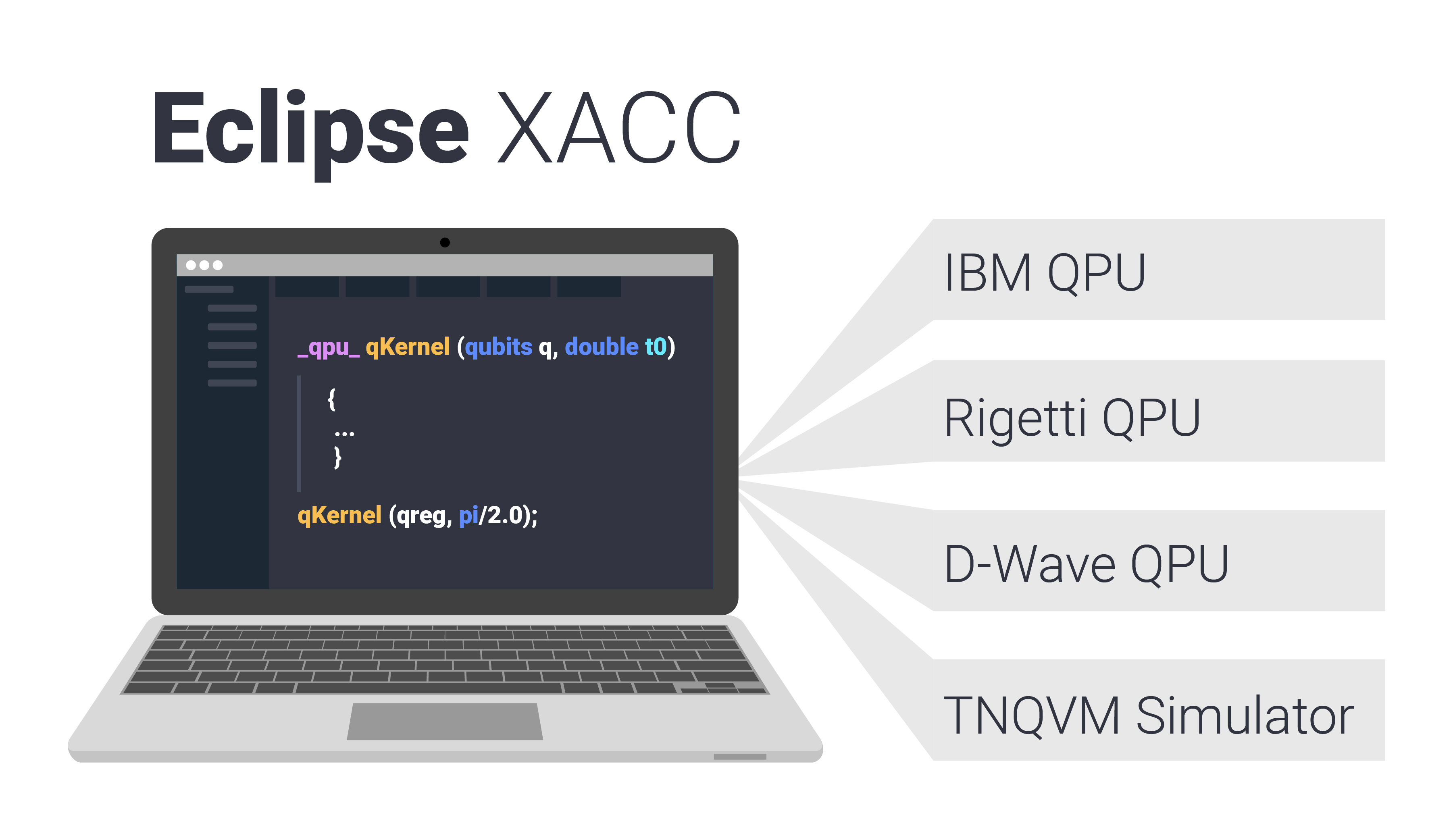Language and Hardware Independent Quantum Programming Framework
XACC is an extensible compilation framework for hybrid quantum-classical computing architectures. It provides extensible language frontend and hardware backend compilation components glued together via a novel quantum intermediate representation. XACC currently supports quantum-classical programming and enables the execution of quantum kernels on IBM, Rigetti, and D-Wave QPUs, as well as a number of quantum computer simulators.
Documentation
Build from Source
Ensure that you have installed CMake 3.2+, a C++11 compliant compiler (GCC 5+, Clang 3.8+), and OpenSSL development libraries (see prerequisites).
Clone the repository recursively, configure with cmake and build with make
$ git clone --recursive https://github.com/eclipse/xacc
$ cd xacc && mkdir build && cd build
$ cmake ..
$ make installYour install will be in $HOME/.xacc. To change the install location, pass -DCMAKE_INSTALL_PREFIX=/path/to/custom/install to cmake. To build the Python API (recommended), pass -DPYTHON_INCLUDE_DIR=/usr/include/python3.5 (or wherever your Python.h is located) to cmake.
Questions, Bug Reporting, and Issue Tracking
Questions, bug reporting and issue tracking are provided by GitHub. Please report all bugs by creating a new issue with the bug tag. You can ask questions by creating a new issue with the question tag.
License
XACC is dual licensed - Eclipse Public License and Eclipse Distribution License.
Cite XACC
If you use XACC in your research, please use the following citation
@article{xacc2018,
title = "A language and hardware independent approach to quantum-classical computing",
journal = "SoftwareX",
volume = "7",
pages = "245 - 254",
year = "2018",
issn = "2352-7110",
doi = "https://doi.org/10.1016/j.softx.2018.07.007",
url = "http://www.sciencedirect.com/science/article/pii/S2352711018300700",
author = "A.J. McCaskey and E.F. Dumitrescu and D. Liakh and M. Chen and W. Feng and T.S. Humble",
keywords = "Quantum computing, Quantum software"
}
